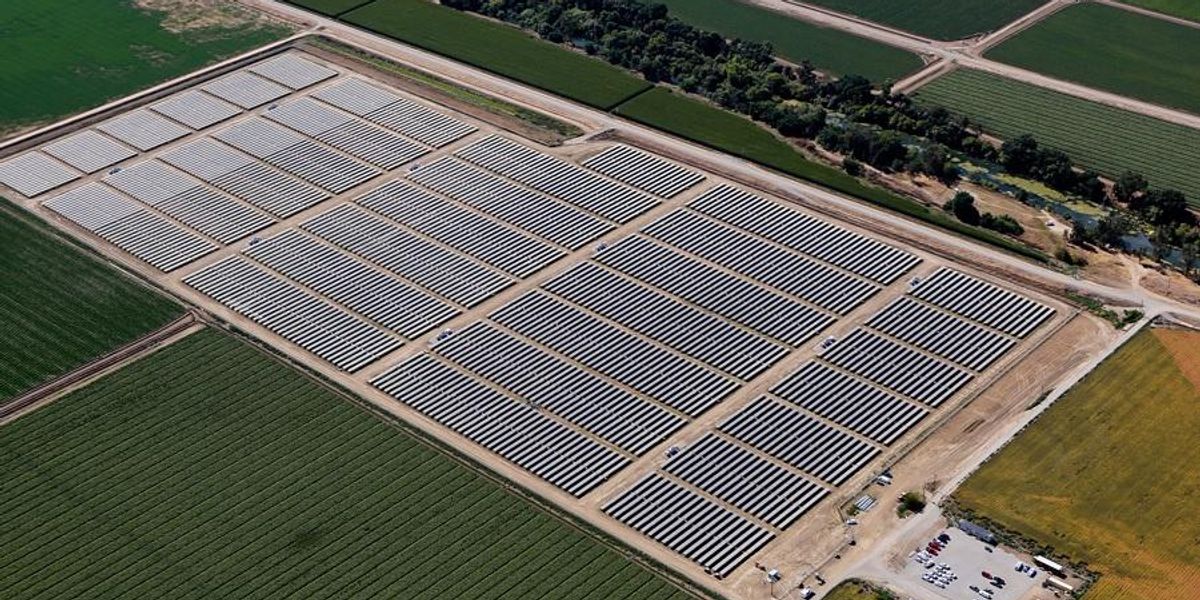An analysis of the 2023 energy market released this week by BP, the world’s fourth-largest oil company, anticipates that oil and gas production will fall more quickly than previously predicted, and that the world will also adopt clean energy faster than had been expected, with corresponding reductions in the carbon dioxide emissions that drive global warming.
BP’s homepage for its “Energy Outlook 2023” report says many nice environmentally woke sounding things about how the world’s “carbon budget” — the amount of CO2 emissions that can go into the atmosphere before sending global warming past the 1.5 degree C (2.7 degrees F) goal of the Paris Climate agreement — is rapidly running out, and notes that governments are increasingly committing to decarbonization, as well as that the “Russia-Ukraine war” makes it all the more vital to make the transition to clean energy. All of which is nice to hear from an oil company, but because BP has a history of saying nice things about cleaning up energy while supporting groups that fight efforts to actually reduce emissions, we’re also skeptical. As Greta Thunberg said, it sounds like a lot of blah blah blah.
That said, the report also makes some specific predictions, as the Guardian summarizes — with some useful context on how much greater the changes will need to be in order to keep warming anywhere near the Paris goals:
In its annual energy outlook report, BP said it had reduced forecasts for global emissions in 2030 by 3.7% and by 9.3% in 2050. It expects oil demand to be 5% lower and gas demand to have fallen by 6% by 2035. The company said deployment of renewables projects would be 5% higher at current rates. […]
BP’s new outlook forecasts that global emissions will peak during the 2020s and fall by 30% on 2019 levels by about 2050. However, that would still be short of the target of net zero by 2050 needed to avoid extremely damaging global heating.
The Guardian also notes that BP has seen huge profits following Russia’s invasion of Ukraine, which in the UK has “led ministers to introduce a windfall tax on North Sea oil and gas operators. The company is expected to reveal fourth-quarter underlying profits of about $5bn next week.”
Further, a report last year documented that BP and the other three largest oil companies — Exxon-Mobil, Shell, and Chevron — are all very big on making pledges to reduce emissions and invest in clean energy, but that the industry remains far better at talking about decarbonizing than actually reducing emissions.
“We thus conclude that the transition to clean energy business models is not occurring, since the magnitude of investments and actions does not match discourse,” the researchers at Tohoku University and Kyoto University in Japan said.
“Until actions and investment behavior are brought into alignment with discourse, accusations of greenwashing appear well-founded,” they added.
The paper, published in the journal PLOS One, found that companies routinely talk about shifting to clean energy, but simply aren’t making the big investments in green technology that would make a difference in reducing emissions. BP and Shell were singled out in the report for promising to reduce investments in oil and gas extraction even as they increased the amount of land and seabed they optioned for oil and gas exploration.
Exxon is the worst of the lot, having generated no clean energy at all between 2009 and 2020, which isn’t the net zero the biosphere needs. And then there’s BP:
BP’s global renewables capacity — the largest among the four majors — amounts to only 2,000 MW, or the the equivalent of about two large gas-fired power plants.
The report did at least give BP and Shell credit for acknowledging that climate science is real, even if they fall short of doing much to change their business practices. (Shell, for its part, just had its highest profits in 115 years.)
Last year, NPR reported, BP explained that the report hadn’t taken into account all the investments it had recently made, like “$1.6 billion in capital investments in low carbon energy” in 2021, so golly, perhaps we’re just being all kinds of mean with our awful skepticism. But even if BP isn’t yet living up to its decarbonization goals — and maybe it is but we just missed the news! — it does seem significant at least that the oil companies themselves are projecting lower production in the near future. They see the writing on the wall, but it’s still anyone’s guess whether they’ll shift into clean energy — and Crom knows there are many ways they can! — or try to extract as much oil and profit as they can before the end of oil.
But we can’t depend on what Molly Ivins called “the awl bidniss” to reform itself. The bastards need to be regulated, and governments need to keep doing like the Biden administration did with the climate bill: Create incentives to clean energy so cheap that dirty energy can’t keep up. As that September 2022 Oxford study I’ve mentioned previously says, the faster wind and solar is deployed, the lower energy prices will go, and oil companies will need to either green up or watch their business model collapse.
[Energy Mix / Guardian / Huffpo / NPR / Photo: UC Davis College of Engineering, Creative Commons License 2.0]
Yr Wonkette is supported entirely by reader donations. If you can, please grid your loins and give $5 or $10 a month to help us keep you up to date on the energy transition.























































![Social Media Spring Cleaning [Infographic] Social Media Spring Cleaning [Infographic]](https://imgproxy.divecdn.com/9e7sW3TubFHM00yvXe5zvvbhAVriJiGqS8xmVFLPC6s/g:ce/rs:fit:770:435/Z3M6Ly9kaXZlc2l0ZS1zdG9yYWdlL2RpdmVpbWFnZS9zb2NpYWxfc3ByaW5nX2NsZWFuaW5nMi5wbmc=.webp)
![5 Ways to Improve Your LinkedIn Marketing Efforts in 2025 [Infographic] 5 Ways to Improve Your LinkedIn Marketing Efforts in 2025 [Infographic]](https://imgproxy.divecdn.com/Hv-m77iIkXSAtB3IEwA3XAuouMwkZApIeDGDnLy5Yhs/g:ce/rs:fit:770:435/Z3M6Ly9kaXZlc2l0ZS1zdG9yYWdlL2RpdmVpbWFnZS9saW5rZWRpbl9zdHJhdGVneV9pbmZvMi5wbmc=.webp)

















